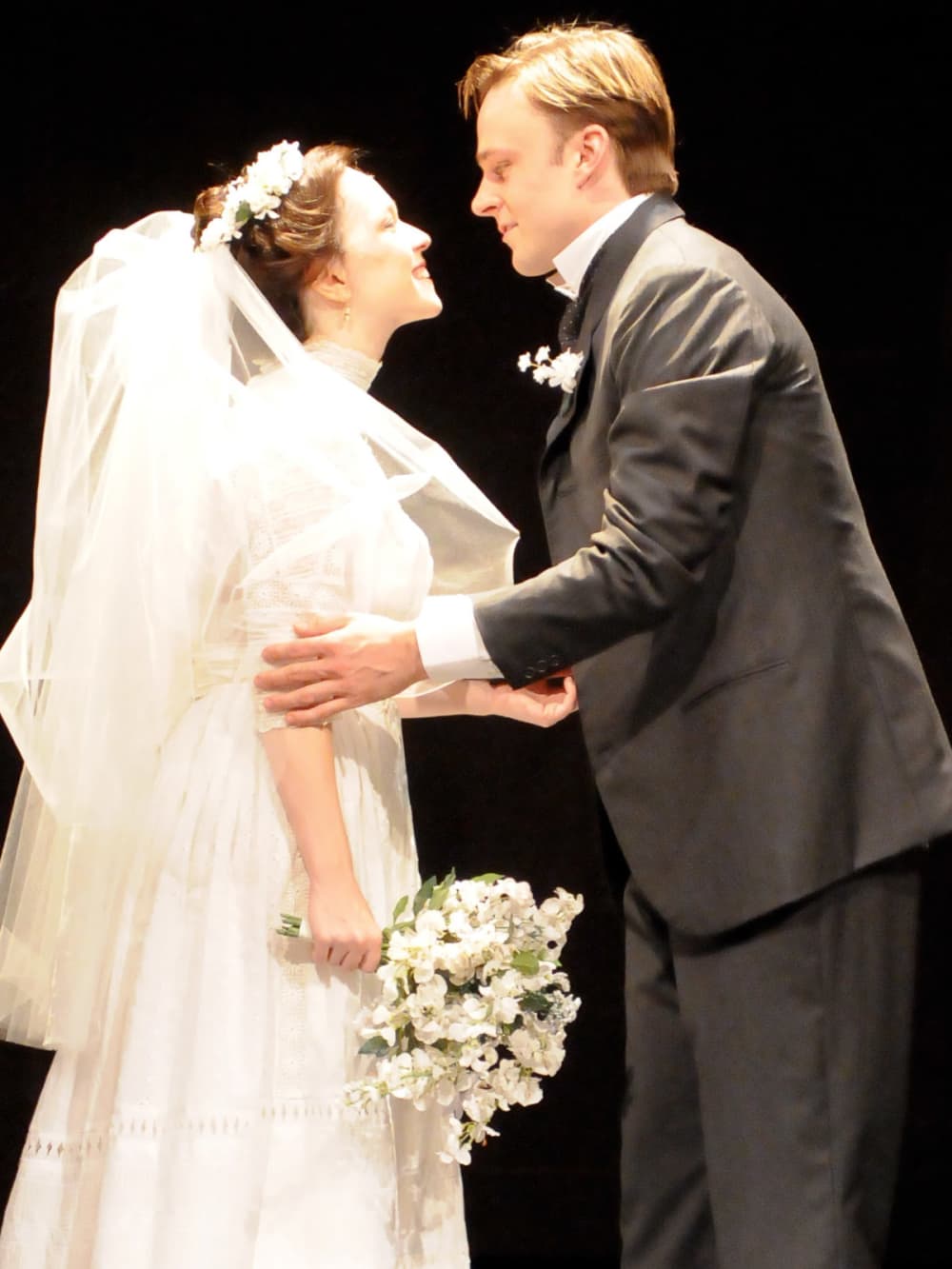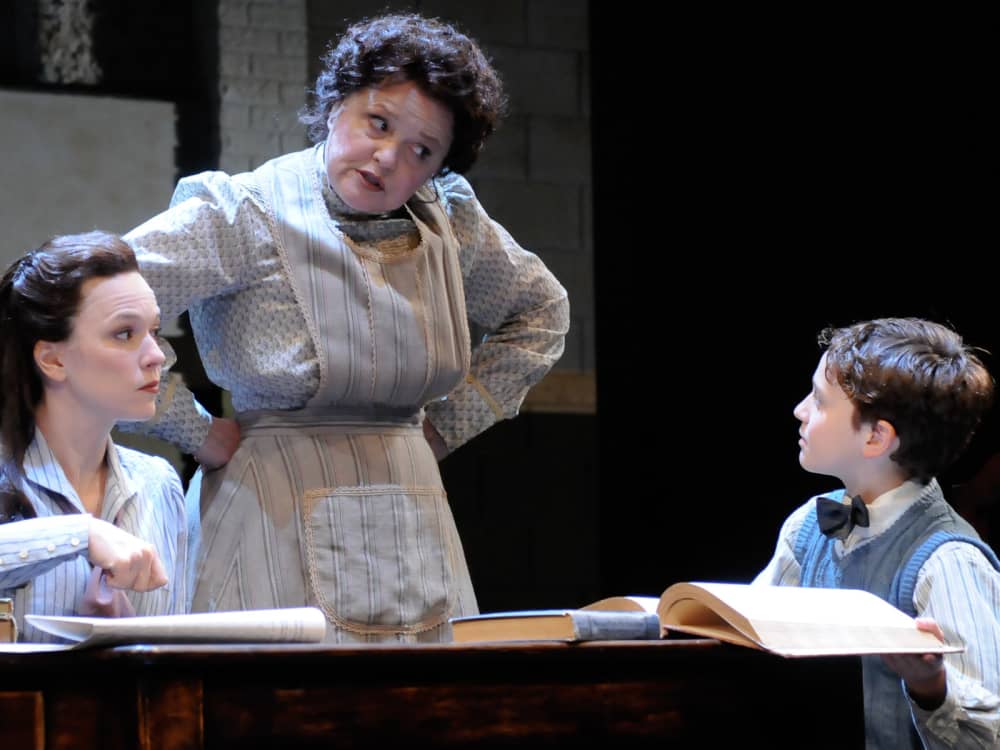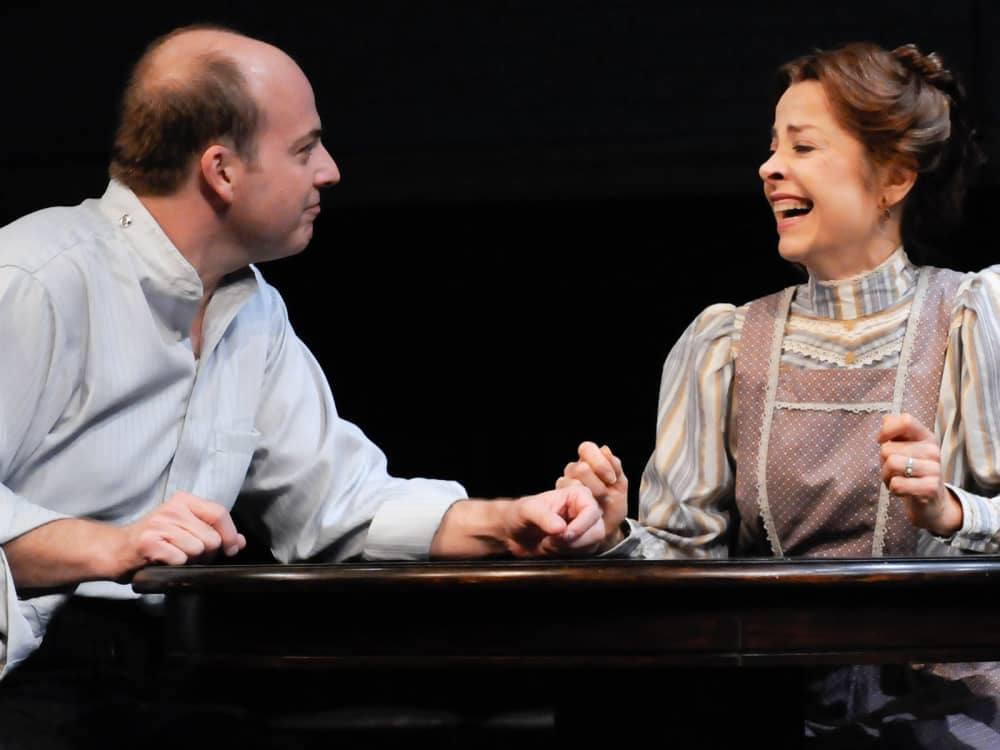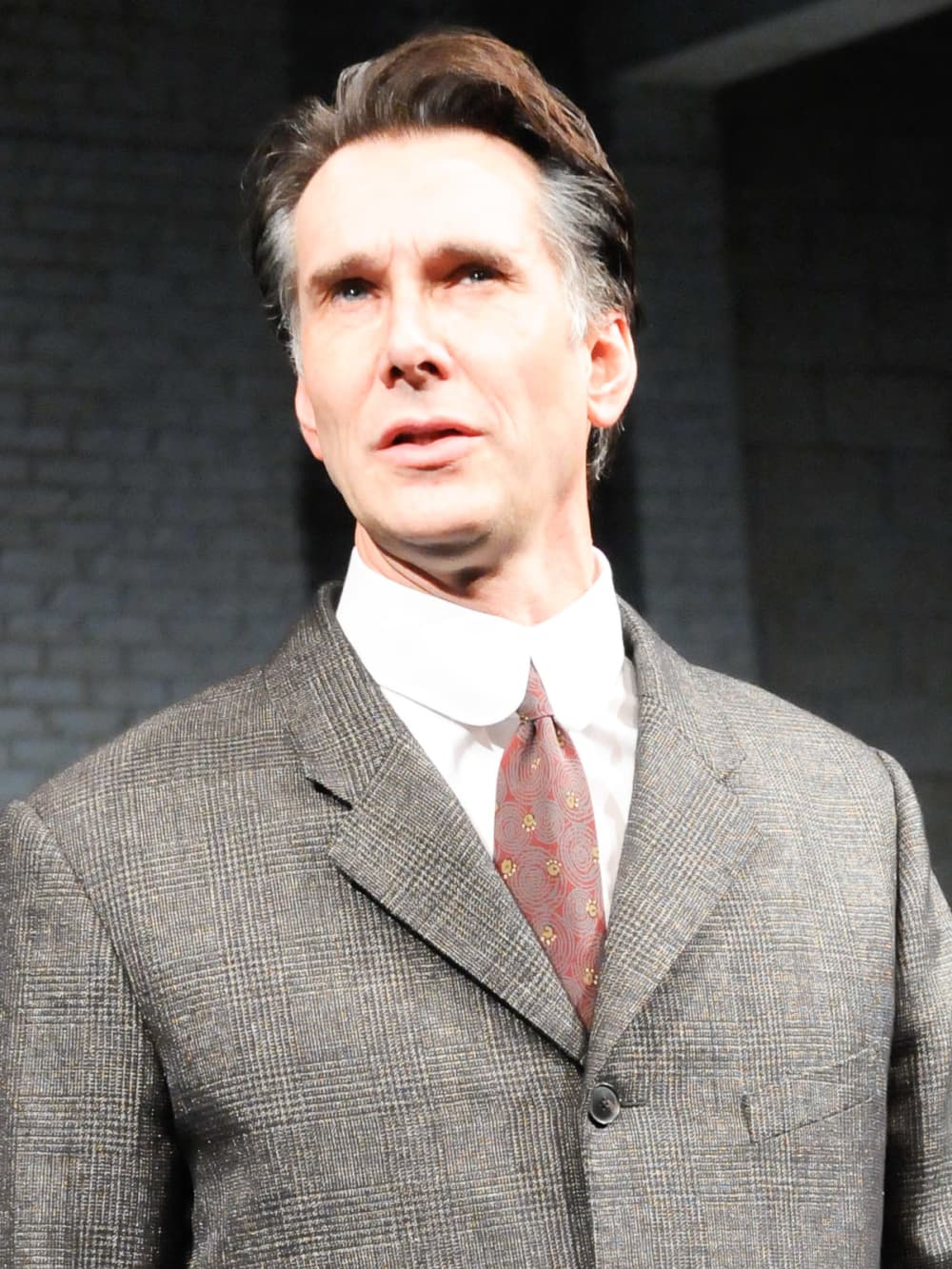How Thornton Wilder's classic remains relevant
Thanks for the memories: Our Town endures
 Elizabeth Bunch as Emily Webb and Jay Sullivan as George Gibbs in the AlleyTheatre's production of "Our Town"Jann Whaley
Elizabeth Bunch as Emily Webb and Jay Sullivan as George Gibbs in the AlleyTheatre's production of "Our Town"Jann Whaley Elizabeth Bunch as Emily Webb, Charlotte Booker as Mrs. Webb and Ashton Lambertas Wally WebbJann Whaley
Elizabeth Bunch as Emily Webb, Charlotte Booker as Mrs. Webb and Ashton Lambertas Wally WebbJann Whaley Jeffrey Bean as Dr. Gibbs and Josie de Guzman as Mrs. GibbsJann Whaley
Jeffrey Bean as Dr. Gibbs and Josie de Guzman as Mrs. GibbsJann Whaley Todd Waite as Mr. WebbJann Whaley
Todd Waite as Mr. WebbJann Whaley James Black as Stage ManagerJann Whaley
James Black as Stage ManagerJann Whaley
Every time I visit my mother's grave in a picturesque New England cemetery, I feel as if I've stepped into a scene lifted right out of Our Town.
Like the cemetery in the Thornton Wilder classic, it's a peaceful place, close enough to the ocean to hear the harsh cries of the seagulls overhead.
My mother's there in the family plot, as is her mother and father and her rascally grandfather, a Portuguese whaler. The last three have been there a long time now.
On each visit, I recognize one more name or face from the past - Crockers, Hamblins, Hallets —longtime Cape Cod families, some going as far back as the mid 1600's. I realize that I know more people resting in the village cemetery than living in the little hamlet where my mother grew up.
Just down the road from my mother's grave lies a newer plot belonging to our friend Bea Jones. I remember her warm welcome and the tantalizing kitchen smells of the homemade cakes and cookies she always baked and generously offered for our trips to the beach.
Like Emily in a scene from Our Town, playing at the Alley through Nov. 1, I wonder why I never thanked her for those treats that were a daily part of my childhood summers. It was something we just took for granted.
And that, in many ways, is what Our Town is about: Memories of everyday life, of love and marriage, birth and death.
For those who think it’s a "folksy" play, written to glorify small town America -- guess again. Our Town could be any town, small or large, and Wilder, who traveled the world and could read in at least four different languages, was no folksy dude.
He chose the village of Grover's Corner, New Hampshire, population under 3,000, to examine many of the ideas and questions that come up in his other plays and his novels.
In Our Town, Wilder looks at eternal themes and human limitations through everyday life. Maybe because we are all struggling with questions in these difficult times, Wilder, a two-time Pulitzer Prize winner who died in 1975, has been rediscovered. Our Town is playing off-Broadway and his first five novels have just been republished.
Houston theater-goers disappointed at the Alley's choice of what many consider an old-fashioned play should reconsider and give this worthy production a chance. There's a reason some plays are performed over and over — though I'm not sure that's true of Harvey, the Alley's choice for later in the season.
The stage for Our Town is purposely bare. When Wilder wrote the play in the 1930's he requested little scenery and just a few props.
Instead, Wilder has the character known as the stage manager (James Black) mime the layout of the small town and explain the characters the audience will be meeting. Black, with his deep, resonant voice, is the perfect choice to hold the narrative together. He recounts the town's history, poses questions and sometimes looks into the future. We meet a young newspaper boy and Black tells us he will graduate top in his class and go to MIT, only to be killed in France during World War I.
"What a waste of an education," the stage manager comments, jerking us back into reality.
Black introduces the seemingly happy Gibbs and Webb families. Their homes sit side by side — so close in fact, that George (Jay Sullivan) can watch the vibrant Emily (Elizabeth Bunch) as she does her homework. George, it turns out, would rather play baseball and discuss running his uncle's farm. The two talk and dream on tall ladders, under a beautiful full moon, the scent of flowers in the air.
Instead of attending agricultural college, George marries Emily and, indeed, takes over his uncle’s farm. A wedding scene shows the excited parents and townsfolk waiting in the church, as George and Emily separately agonize over their decision to marry and leave their childhood behind.
Nine years after George and Emily have married and made a success of the farm, we see a cemetery on a hill. Familiar faces watch a funeral procession and the audience realizes that a still-young Emily has died in childbirth. As her ghost joins the others, Emily is told she must forget her old life.
But Emily begs the stage manager to give her one more day on Earth. He allows her to pick one more ordinary day, not an important one. Emily chooses her 12th birthday. But her family only sees her as she was then. To her mother it's like any other morning as she calls Emily and her brother and husband to breakfast, while Emily the ghost tries, without success, to explain that she's home for one final time.
She returns to the cemetery and asks the stage manager: "Do any human beings ever realize life while they live it? Every every minute?"
"No," he replies. "Saints and poets, maybe. They do some."
And maybe theater-goers and cemetery visitors, too, if they really listen.




